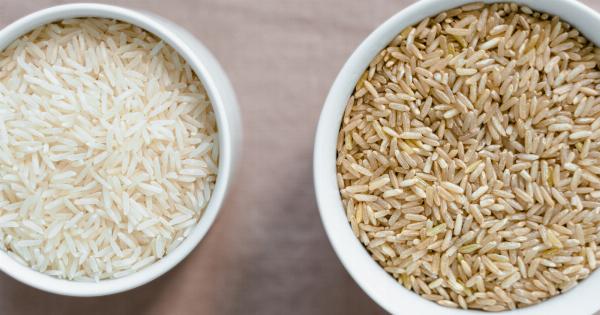Inflammatory Bowel Diseases (IBD) are chronic conditions that cause inflammation in the digestive tract. The two main types of IBD are Crohn’s disease and ulcerative colitis.
While there is no known cure for these diseases, their symptoms can be managed with the help of medications, lifestyle changes, and dietary modifications. One of the most significant dietary approaches to managing IBD is the incorporation of fruits into the daily diet. Fruits offer a multitude of benefits that can help soothe inflammation and promote overall gut health.
Let’s explore the secrets of fruits in managing inflammatory bowel diseases.
1. Rich in Fiber
Fruits are excellent sources of dietary fiber. Fiber plays a crucial role in maintaining regular bowel movements and preventing constipation, a common symptom in IBD patients.
Including fiber-rich fruits such as berries, apples, pears, and bananas can provide relief from constipation and promote healthy digestion.
2. Antioxidant Powerhouses
Fruits are known for their high antioxidant content that helps combat inflammation in the body. Inflammatory bowel diseases are characterized by chronic inflammation, which can lead to tissue damage and increased symptoms.
Antioxidants like vitamin C, vitamin E, and various phytonutrients found in fruits help neutralize harmful free radicals and reduce inflammation, thereby alleviating the symptoms of IBD.
3. Hydration and Electrolyte Balance
Many fruits have a high water content, which helps in maintaining adequate hydration. Diarrhea is a common symptom in IBD, leading to fluid loss and electrolyte imbalances.
Fruits like watermelon, oranges, and grapes not only provide hydration but also replenish essential electrolytes like potassium and magnesium, which are lost during bouts of diarrhea.
4. Gut-Healing Properties
The gut lining plays a significant role in IBD. Inflammation can damage the intestinal lining, leading to a leaky gut and further aggravating the symptoms.
Certain fruits, such as papaya and kiwi, contain enzymes (papain and actinidin, respectively) that aid in breaking down and digesting proteins. These enzymes have shown potential in reducing gut inflammation and promoting gut healing, making fruits a valuable addition to an IBD-friendly diet.
5. Natural Source of Vitamins and Minerals
Fruits are packed with essential vitamins and minerals that support overall health and immune function. IBD patients often experience nutrient deficiencies due to malabsorption or dietary restrictions.
Including a variety of fruits ensures an adequate intake of vitamins A, C, E, and minerals like potassium, magnesium, and folate. These nutrients play a vital role in reducing inflammation and supporting the body’s healing processes.
6. Low in FODMAPs
Some IBD patients may have sensitivities to certain carbohydrates known as FODMAPs (Fermentable Oligosaccharides, Disaccharides, Monosaccharides, and Polyols). These sugars can trigger symptoms like bloating, gas, and abdominal discomfort.
Fortunately, many fruits are low in FODMAPs, making them well-tolerated by individuals with IBD. Examples of low-FODMAP fruits include strawberries, blueberries, citrus fruits, and cantaloupe.
7. Natural Prebiotics
Prebiotics are non-digestible fibers that serve as food for beneficial gut bacteria. They help nourish and support the growth of probiotics, the good bacteria in our gut.
Fruits like bananas, apples, and kiwis contain natural prebiotics, which contribute to a healthier gut microbiome. A balanced and diverse gut microbiota has been linked to reduced inflammation and improved symptoms in IBD patients.
8. Easy to Digest
One of the challenges faced by individuals with IBD is difficulty in digesting certain foods. Fruits, especially when ripe, tend to be easy on the digestive system and well-tolerated by most IBD patients.
They provide nutrients in a form that is readily accessible for the body and can be a gentle source of sustenance during periods of flare-ups or digestive discomfort.
9. Versatile and Delicious
One of the keys to maintaining a healthy diet for IBD management is variety and enjoyment. Fruits offer a wide range of flavors, textures, and colors, making them a versatile addition to any meal or snack.
From enjoying a refreshing fruit salad to blending fruits into smoothies or even baking them into wholesome desserts, there are countless ways to incorporate fruits into an IBD-friendly diet, ensuring both nutrition and satisfaction.
10. Psychological Boost
Living with a chronic condition like IBD can have emotional and psychological impacts. Fruits, with their vibrant colors and natural sweetness, can provide a psychological boost by enhancing the overall enjoyment of meals.
This small but significant aspect can have a positive impact on the overall well-being of individuals managing IBD.


























